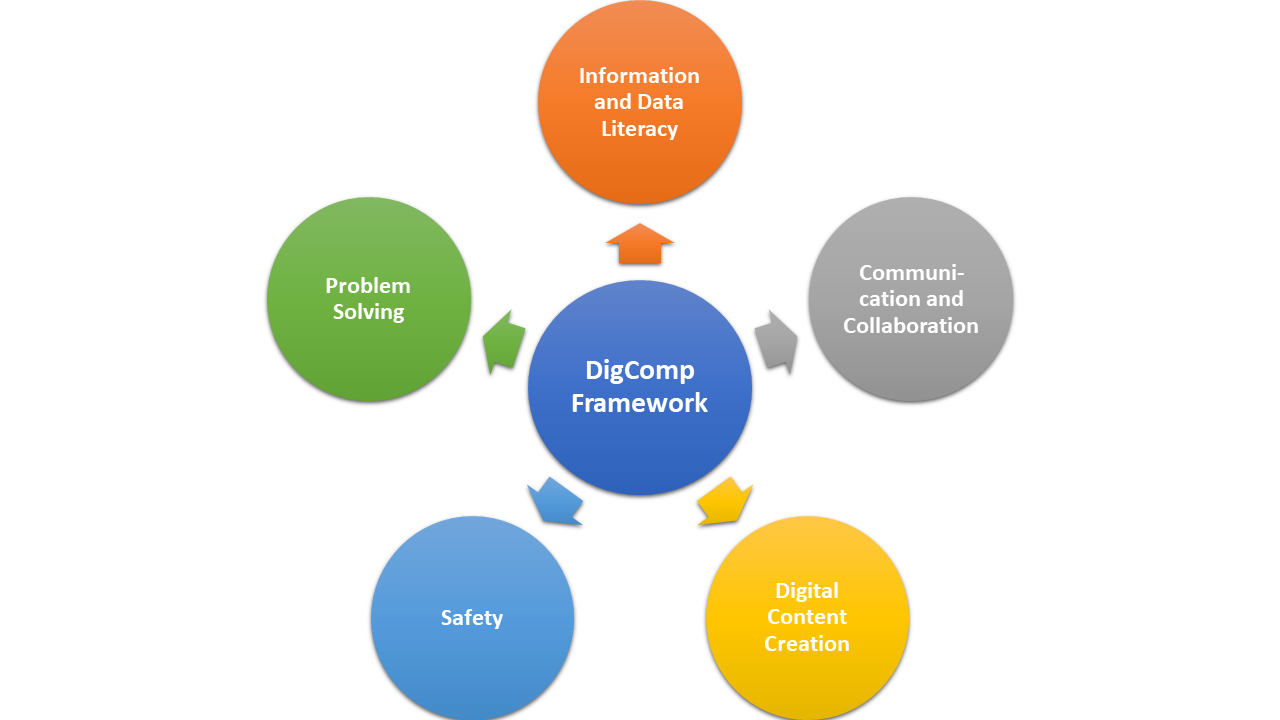The Digital Competence Framework, also known as the DigComp Framework, is a set of guidelines published by the European Commission in order to support the development of digital competencies among individuals in the European Union. It provides a comprehensive and harmonized approach to the development and assessment of digital competencies, which are seen as essential skills for the 21st century.

Digital competencies are a must in today’s digital world. Here you see a group of young people cooperating based on technology.
The DigComp Framework
The DigComp Framework was first published in 2013 and has since undergone several updates to reflect the rapidly changing digital landscape. The most recent version, DigComp 2.1, was published in 2018 and provides a detailed overview of the five domains of digital competence: Information and Data Literacy, Communication and Collaboration, Digital Content Creation, Safety, and Problem-Solving.
Elements of the Framework
- Information and Data Literacy is the ability to find, evaluate, and use digital information and data effectively. This includes being able to search for and retrieve information online, assess the credibility and relevance of information, and use it to inform decisions and actions.
- Communication and Collaboration refer to the ability to communicate and collaborate using digital tools and technologies. This includes using digital tools such as email, instant messaging, and social media to communicate and collaborate with others, as well as understanding the ethical and social implications of digital communication and collaboration.
- Digital Content Creation is the ability to create, manipulate, and use digital content. This includes creating digital documents, images, and videos, as well as using digital tools and technologies to edit, modify, and publish digital content.
- Safety refers to the ability to use digital technologies safely and responsibly. This includes understanding and applying safe online practices, such as protecting personal information and avoiding online scams, as well as being aware of the risks associated with digital technologies and taking steps to minimize these risks.
- Problem-Solving refers to the ability to use digital technologies to solve problems. This includes being able to identify and solve problems using digital technologies, as well as understanding how digital technologies can be used to support problem-solving in different contexts and across different domains.
The DigComp Framework provides a common language and framework for the development and assessment of digital competencies across the European Union and serves as a valuable tool for individuals, organizations, and policymakers in their efforts to promote digital literacy and competencies. By providing a comprehensive and harmonized approach to developing and assessing digital competencies, the DigComp Framework helps ensure that individuals are equipped with the skills and knowledge needed to participate fully in the digital economy and society.
Summary
In conclusion, the DigComp Framework is a crucial tool for promoting digital competencies among individuals in the European Union. By providing a comprehensive and harmonized approach to developing and assessing digital competencies, the DigComp Framework helps ensure that individuals are equipped with the skills and knowledge needed to participate fully in the digital economy and society.

